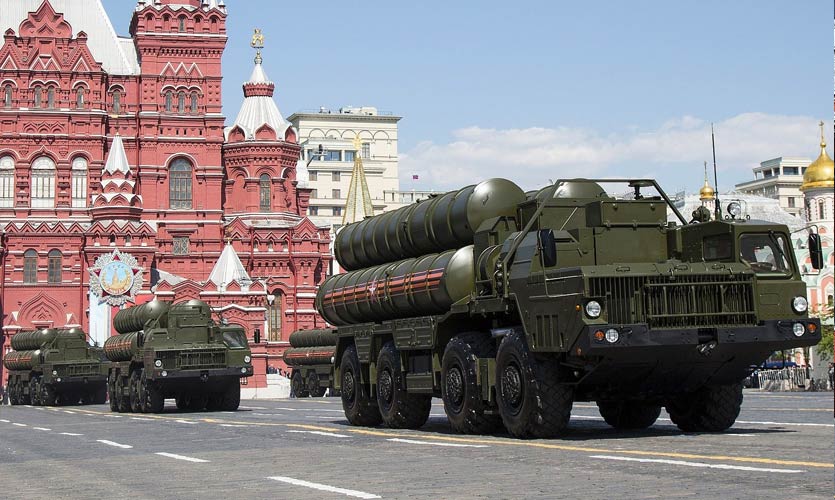A report by the Royal United Services Institute (RUSI) has revealed that British technology is being shipped to other countries, to make weapons for Russia’s war against Ukraine. It has been brought to the attention of both China and India, since both use Russian-manufactured weapons for military purposes. As per the report titled ‘Operation Z: The Death Throes of an Imperial Delusion’, Indian and Chinese companies have acted as middlemen, allowing the Kremlin to purchase British electronic chips and switchboards, which are crucial to Russian cruise missiles. There is a legal loophole that allows “material to enter Russia without the permission of the owner of the relevant intellectual property”.
British PM Boris Johnson, who visited India last week, stated that his government would try to resolve these shortcomings. He said, “We want to ensure we keep that tight. We’ll be making sure that we don’t allow any loopholes of any kind. We will take steps to make sure that stuff doesn’t go through other routes to Russia.”
According to the RUSI report, NATO member countries France and Germany had provided Russia with $295 million in military hardware, which was likely used in Ukraine. Although the EU imposed an arms embargo following Russia’s annexation of Crimea in 2014, the two major NATO allies, reportedly, continued to supply bombs, rockets, missiles, and firearms to Moscow. Similar to what Indian and Chinese companies have been doing, NATO countries trading in hardware with Russia have also taken advantage of some legal loopholes in the EU embargo regime.
Russia is dependent on Western electronics for the manufacture of the 9M727 cruise missile, the Kh-101 cruise missile, the 9M949 300-mm guided rocket, the TOR-M2 air-defence system, and the Aqueduct radio.
This report mentions technologies from the United States, Germany, the Netherlands, Japan, and Israel, along with the United Kingdom. It concluded that the Russian military imports almost all of its modern hardware from Western nations. Scientists have discovered that much of the technology is officially transferred to countries such as India for use in other products, but ultimately sold to Russia for use in military products. The report points out that while companies may not have known that the Russian military was the “end user”, Russia “has established mechanisms for laundering these items through third countries”.
The report’s authors, defence specialists Dr Jack Watling and Nick Reynolds, wrote that Western countries must perform a full review of where their enterprises are knowingly or unwittingly providing Russia, and cut off these pathways. India and China are the main consumers of Russian military gear and have a close connection with Moscow, which has stopped them from overtly opposing Russia’s military activities in Ukraine. While China has renewed the connection throughout the conflict, India has taken a more independent stance and decided to purchase Russian oil at a discount. The West has spoken out against these policy decisions.
The Western bloc has issued severe cautions to nations who fail to denounce Russian President Vladimir Putin. While oil may be considered an exemption by the West, electronic chips from the United Kingdom put into Russian cruise missiles is a ‘red line’ not to be crossed. Russia has deployed cruise missiles to attack Ukraine’s military convoys, installations, and armament stockpiles, crippling the latter’s warfighting capabilities and, at times, resulting in civilian fatalities. At a time when the United Kingdom is delivering lethal long-range weaponry to the Ukrainian military battling invaders, its components in Russia may be deemed obnoxious.
The research also looks at Russia’s failures throughout the early phases of Ukraine’s devastating war. It supposes that logistical supply issues, insufficient knowledge, and poor deployment of artillery fire were among the reasons Putin was obliged to halt his attack on Kyiv. According to the EurAsian Times article, the selection of a new commander of the invading forces, General Aleksandr Dvornikov, may mark a watershed moment in Russia’s operation. It goes on to state that Russia has been attempting to pin down Ukrainian air defences across the nation, by continuing to conduct ballistic and cruise missile strikes on cities. It has been compelled to restart the operation owing to its unwillingness to watch its position deteriorate.
According to analysts, the operation in Donbass will not be decisive. Russia may capture the region, but Ukraine will not accept a ceasefire under these conditions since that could allow Russia to cement its conquests, allowing it to annex Ukraine piece by piece. Meanwhile, Ukraine’s goal is to regain its lost areas, which can only be accomplished if Russia’s invasion is halted. According to the RUSI research, the next critical date to monitor is May 9 – known as ‘Victory Day’ – which is a major holiday in Russia, commemorating the defeat of Nazi Germany in World War II.
Putin had intended to have captured a significant part of Ukraine by then, but given the embarrassment over his failed attempts, authors of the RUSI study anticipate that the Kremlin will use Victory Day to organise and enrol thousands more Russians into the army.
Having said that, the report’s revelations may spark a flurry of legal wrangling and upgrades to legal export mechanisms in the UK and other countries. As the conflict in Ukraine continues, closing all loopholes and blocking any sensitive export through a third country to Russia, which could in any way aid its war machinery, is a priority for the Western bloc.










